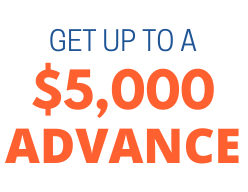When you receive a lump sum of cash from a structured settlement it’s hard to think of anything better, right? It’s cash that you can rely on time after time. Well, imagine using the cash you received from selling your structured settlement to pay for your education. You’d be better able to take care of yourself and your family; that’s in addition to bragging rights!
Here’s some history for ya:
Benjamin Franklin said, “An investment in knowledge always pays the best interest.”
He was a pretty smart guy – because whether you’re the academic type or enjoy more hands-on learning, there are a ton of educational options available. We’re talking trade schools, to apprenticeships, all the way up to the Ivy Leagues; all of them can be accessed by those with the right resources.
Of course, the resources we’re talking about are time and money; selling a structured settlement can help you get both. Using the cash payout from selling a structured settlement can get you the money you need to not only pay your tuition but also cover living expenses so you can concentrate on your studies.
 For those who’ve received a lump sum cash payment from selling their structured settlement, the educational opportunities available are endless. To help you take stock of your options, RSL Funding has done some of the heavy lifting. We’ve gone over the pros and cons of some of the higher learning paths available to those who want to get down and nerdy.
For those who’ve received a lump sum cash payment from selling their structured settlement, the educational opportunities available are endless. To help you take stock of your options, RSL Funding has done some of the heavy lifting. We’ve gone over the pros and cons of some of the higher learning paths available to those who want to get down and nerdy.
Trade Programs
In the wake of some pretty nasty corporate layoffs, careers in the trades have started to become much more attractive.
PROS: Unlike university or college degrees, many people who apprentice for trades are paid throughout their apprenticeship and can attend school while working and learning on the job. It’s a pretty sweet deal because they offer a good level of flexibility. Trades can also pay very well, and employment can be easy to come by for those in sought-after trades, such as electric work and plumbing.
CONS: While seasoned professionals can make good money, apprentices first starting out are paid very little. If you’re thinking about taking up a trade, selling your structured settlement can help supplement your income while you get up to speed. There’s another downside too – trades typically require lots of physical labor and a certain level of physical fitness. In some cases, tradespeople can lose their ability to work when they get older.
Community College
For many, a university education is out of the question, either because a university degree wouldn’t be useful in their line of work or the time required to complete the degree is too long. For people looking for higher education outside of a university degree, completing a degree at a community college is an attractive alternative. A degree from a community college can be achieved in two years, instead of the four or more required for a university degree.
Most community colleges offer both traditional course offerings (math, history) as well as job-specific courses (nursing, mechanics). The lump-sum payment from selling a structured settlement can provide the funds needed to finance a community college degree and help cover living expenses.
PROS: As the name implies, community colleges are local and don’t require students to move or commute long distances in order to attend; in addition, tuition costs are much less than at universities. Community college degrees take half as long to complete as university degrees and span both traditional academic studies as well as job-specific training.
CONS: A degree obtained from a community college is usually considered inferior to a university degree and doesn’t open the same employment doors that a degree from an Ivy League school does.
 Ivy League Education
Ivy League Education
For academics, an Ivy League education is the creme de la creme.
The Ivy Leagues consist of eight schools: Brown University, Columbia University, Cornell University, Dartmouth University, Harvard University, the University of Pennsylvania, Princeton University, and Yale University.
PROS: A degree from any of the eight Ivy League members is considered prestigious and can lead to well-paying career with some of America’s top employers. As many of the world’s corporate and political leaders are Ivy League-educated, the connections and friendships made at these schools can pay dividends for life.
CONS: The cost to obtain an Ivy League degree is very high and beyond the reach of most Americans. In fact, tuition costs at Ivy League schools can be as high as $100,000 per year, and that’s not including textbooks and living expenses. Selling a structured settlement can help overcome the huge financial hurdle of an Ivy League education. However, paying tuition is only one part of the problem; getting the credentials for admission can also be extremely challenging. For example, out of more than 40,000 applications, Harvard University accepted less than 2,000 applicants for its class of 2022.
Structured Settlement Cash to Fund Your Education
Using the cash that you receive from selling your structured settlement in education is a smart move that will help secure a better future for you and your family; however, not all educational opportunities are created equal. Before investing a large amount of money and time, ensure that the educational path you’ve chosen is the right one. You should also think about the right buyer of your payments. You want to get the most cash in your lump sum so it can carry you throughout your academic career and beyond.
Ready to sell your payments for a lump sum? Call RSL Funding now at 1-800-543-6513.






